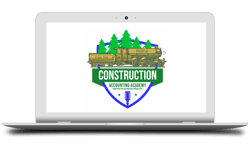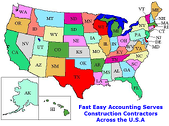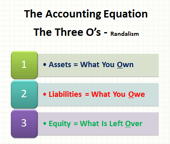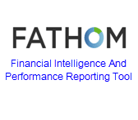As the year draws to a close, construction business owners find themselves in a critical period of reflection and preparation. The year's end is a time to celebrate past successes and an opportunity to assess financial health and strategize for the coming year. A thorough year-end financial checklist can help ensure your business is on solid footing as you move forward.
Access to the best available tools and information is vital in almost any operation but is especially crucial in the competitive construction and home service industry. To help with your year-end tasks, take advantage of our exclusive 40% discount on Bookkeeping Templates (consulting, bookkeeping review, and outsourced accounting subscriptions excluded) and Construction Accounting Academy classes now through January 6, 2025. you can use our promo code YEAREND40.
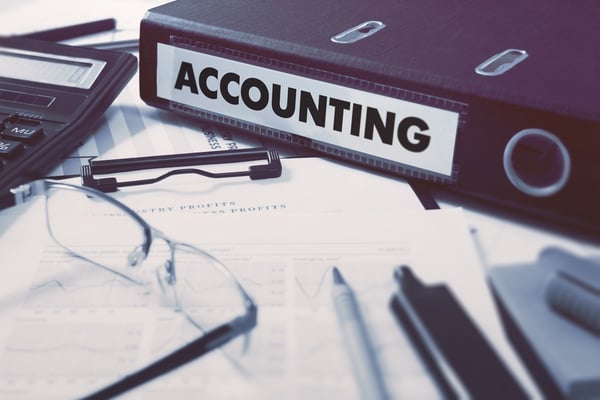
Here's a comprehensive guide to get you started.
Start by reviewing your financial statements: the balance sheet, income statement, and cash flow statement. Look for trends and compare them with previous years. Key metrics to analyze include:
Revenue Growth: Are you growing? What are the factors influencing your growth?
Conduct a thorough reconciliation of your accounts. Ensure that your bank statements, accounts payable, and accounts receivable align with your financial records. This step helps to identify any discrepancies or outstanding payments that need to be addressed.
For construction businesses, managing equipment, materials, and supplies is crucial. Conduct an inventory assessment to:
Evaluate Asset Condition: Determine which pieces of equipment may need maintenance or replacement.
Understanding your tax obligations is essential as you wrap up the year. Here are some necessary steps to take:
Gather Documentation: Compile all necessary documents, including receipts, invoices, and expense reports.
Plan for Estimated Taxes: Ensure you understand your estimated tax obligations for the upcoming year to avoid surprises in the new tax season.
Take a close look at your expenses over the past year. Categorize them to assess where you can cut costs or reallocate funds. Some common expenses to analyze include:
Labor Costs: Are your labor costs in line with industry standards?
Once you have a clear financial standing, it's time to update your budget for the upcoming year. Consider:
Projected Revenue: Based on your backlog and market trends, forecast your revenue realistically.
With your assessments complete, it's time to establish clear, actionable financial goals for the new year. Consider goals such as:
Increasing Profit Margins: Identify specific strategies to achieve this.
Year-end is a perfect time to review your insurance policies to ensure you're adequately covered. Areas to review include:
General Liability Insurance: Confirm you have the right coverage for your needs.
Construction is a highly regulated industry. Use year-end as a reminder to review your compliance with safety regulations and industry standards. Take the time to:
Assess Safety Protocols: Make sure all safety measures are up-to-date.
Finally, take a moment to reflect on your business's achievements over the past year. Celebrate your successes, learn from your challenges, and share your accomplishments with your team. Building a strong company culture is critical to your long-term success.
When conducting a year-end financial review with your construction bookkeeper, asking questions that will clarify your financial standing, ensure compliance, and help you strategize for the coming year is essential. Here are some key questions to consider:
- Can you provide a detailed analysis of our balance sheet, income statement, and cash flow statement for the year?
- What trends are you observing in our financial performance compared to previous years?
- Have all accounts been reconciled, including bank statements, accounts receivable, and accounts payable?
- Were there any discrepancies or outstanding items found during the reconciliation process?
- How is our inventory being tracked, and do you have recommendations for improving inventory management?
- Are there any slow-moving items or equipment that we should consider selling?
- What tax documentation must we compile for the upcoming tax season?
- Can we take advantage of any new deductions or credits this year?
- Can you break down major expense categories for the past year, and do you see areas where we can reduce costs?
- How do our labor and material costs compare to industry benchmarks?
- How closely did we adhere to our budget this year, and what were the main variances?
- What changes should we consider for our budget for the upcoming year based on our current financial situation?
- Based on our financial performance, what specific financial goals should we set for the upcoming year?
- What strategies do you recommend for improving profit margins and enhancing cash flow?
- Do our insurance policies adequately cover us, and do you suggest any changes?
- Have all compliance and safety regulations been met, and is our documentation current?
- How do you perceive the overall financial health of our business based on your records?
- Can operational efficiencies or technology implementations support our financial goals?
- What potential financial risks should we be aware of going into the new year?
- How can we better prepare for anticipated tax obligations or changes in construction industry regulations?
Discussing these questions with your bookkeeper will give you valuable insights, helping you make informed decisions about your construction business as you plan for the upcoming year.
By following this year-end financial checklist, construction business owners like you can position your company for a successful year ahead. Taking the time to review, analyze, and strategize will improve your financial health and operational efficiency.
IMPORTANT NOTICE:
Recent changes to the Beneficial Ownership Information reporting requirements may affect your organization. Please thoroughly review these updates to comply with the latest regulations. Also, please pay attention to any deadlines and necessary documentation to maintain compliance.
Starting January 1, 2024, many U.S. businesses must report information about their beneficial owners, i.e., those who own or control the company. Businesses must report Beneficial Ownership Information (BOI) to the Financial Crimes Enforcement Network (FinCEN), a U.S. Department of the Treasury bureau. The reporting, a requirement of the Corporate Transparency Act (CTA), aims to combat financial crime and corruption and must be completed by January 1, 2025.
Key points about the update:
Who needs to report:
Any company formed or registered in the United States, including:
- Corporations
- Limited Liability Companies (LLCs)
- Limited Partnerships
- Certain trusts
What information needs to be reported:
This includes the legal name, date of birth, and address of each beneficial owner, as well as identifying information like a passport or driver's license number.
Filing deadline for existing businesses:
Companies formed before January 1, 2024, must file their beneficial ownership information by January 1, 2025.
Filing deadline for new businesses:
Companies formed in 2024 must file within 90 days of formation.
Where to file:
Beneficial ownership information must be submitted electronically through FinCEN's BOI E-Filing website.
Potential consequences of non-compliance: Businesses that fail to comply with the beneficial ownership reporting requirements may face significant civil penalties and possible criminal charges.
Please go directly to the FinCEN website for more information and answers to Frequently Asked Questions.
Keeping your records current is crucial for adhering to these new requirements. If you have any questions or need further clarification, please contact a legal expert specializing in compliance. We do not offer this service, but please feel free to contact me anytime when you need help with your construction bookkeeping, accounting, and business in general.
Disclaimer: This notice is for informational purposes only and does not constitute legal advice. For specific guidance, please consult with an attorney familiar with the CTA and its regulations.
About The Author:
![]() Sharie DeHart, QPA, is the co-founder of Business Consulting And Accounting in Lynnwood, Washington. She is the leading expert in managing outsourced construction bookkeeping and accounting services companies and cash management accounting for small construction companies across the USA. She encourages Contractors and Construction Company Owners to stay current on their tax obligations and offers insights on managing the remaining cash flow to operate and grow their construction company sales and profits so they can put more money in the bank. Call 1-800-361-1770 or sharie@fasteasyaccounting.com
Sharie DeHart, QPA, is the co-founder of Business Consulting And Accounting in Lynnwood, Washington. She is the leading expert in managing outsourced construction bookkeeping and accounting services companies and cash management accounting for small construction companies across the USA. She encourages Contractors and Construction Company Owners to stay current on their tax obligations and offers insights on managing the remaining cash flow to operate and grow their construction company sales and profits so they can put more money in the bank. Call 1-800-361-1770 or sharie@fasteasyaccounting.com
OUTSOURCED ACCOUNTING FOR
THE BUSY CONTRACTOR
IN A MOBILE ENVIRONMENT
 |
 |
 |
 |
Download the Contractors APP today from the App Store or Android Store
Access Code: FEAHEROS
Click here to download the App on Android:
Click here to download the App on iOS:
Simply scan the QR code or search for ‘MyAccountants’ in the App Store and enter the Access code: FEAHEROS to utilize the powerful App features and capabilities, and benefit from having our Construction Accounting App at your fingertips, 24/7."
PS: Even if you are not a Construction Contractor you will find a plenty of benefits in the app so we invite you to download it too! It's Free so why not?






